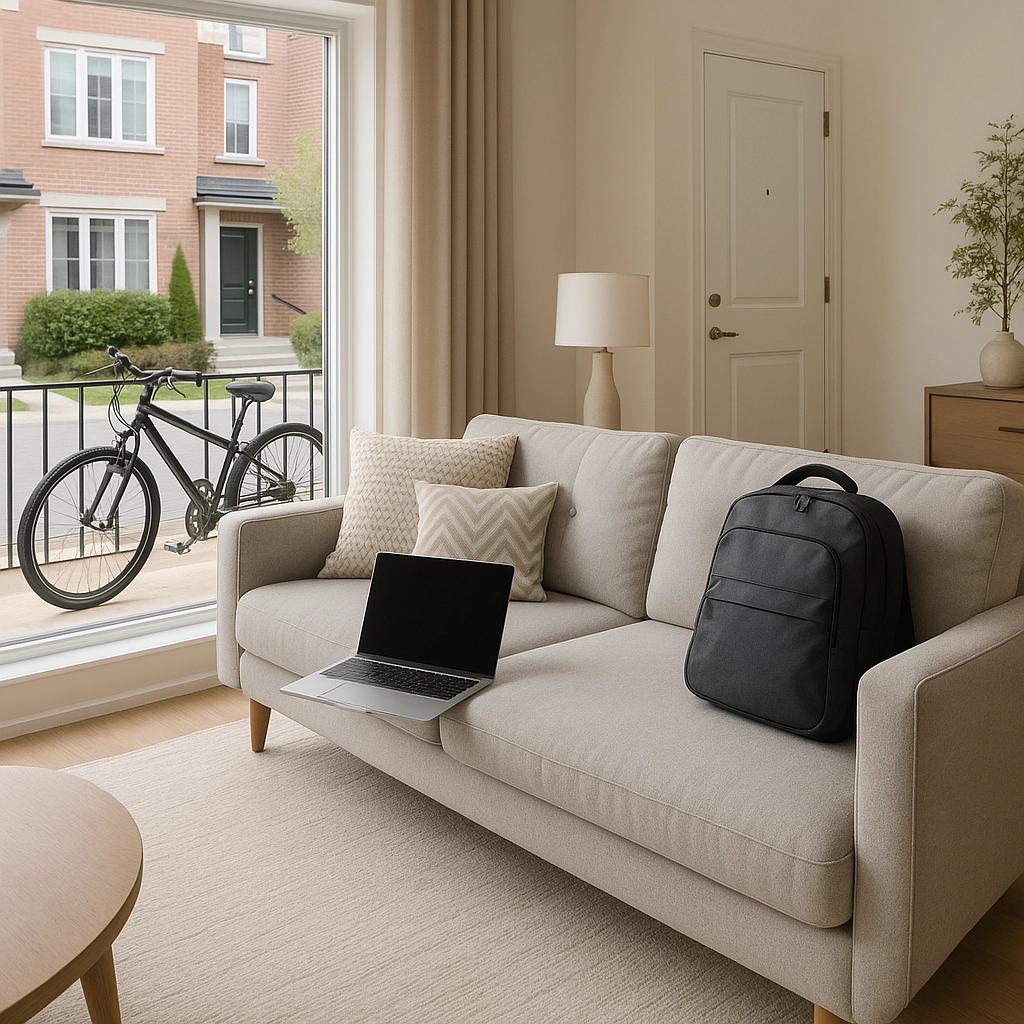Why Renter's Insurance Is Critical for Homeowners, Landlords & Tenants
- Maria Milano
- Aug 14, 2025
- 5 min read
When it comes to renting, one of the most overlooked must-haves is renter's insurance. Whether you’re a tenant moving into a new apartment, a landlord safeguarding your investment, or even a homeowner considering renting out your property, understanding and embracing renter’s insurance is a game-changer for financial security and peace of mind. Let's break down why renter's insurance is so critical for everyone involved—and how ARC Property Management can help you make the right move.
What Is Renter’s Insurance?
Renter's insurance is a simple, low-cost policy that covers a tenant’s personal belongings, liability for accidents, and additional living expenses if the rental unit becomes uninhabitable. Unlike homeowners insurance, which covers both the building structure and personal belongings, renter’s insurance is designed just for people who rent their home, not those who own it. Homeowners and landlords, of course, must carry their own insurance as well, but making sure tenants have this extra layer of protection is now standard practice for professional property managers like ARC Property Management.
Why Tenants Need Renter’s Insurance
1. Protecting Your Stuff—No Matter Where It Is Renters insurance covers personal property lost to fire, theft, vandalism, water damage, and even incidents away from your rental. That includes furniture, clothes, laptops, bikes, jewelry, even the phone you carry to work. Spill coffee on your laptop at a café? It’s covered (subject to policy terms). Come home to find your stuff is gone after a break-in? Your policy helps you replace what’s lost. Without this protection, replacement costs can get ugly—fast.
2. Liability Coverage: Because Accidents HappenImagine your pet damages a neighbor’s apartment, or a friend trips over a rug and breaks their arm during a visit. Renter’s insurance liability protection covers medical bills and legal fees, shielding you financially if you’re found responsible. Most policies start at $100,000 in liability coverage and go up from there—enough cushion for most situations you’ll face as a tenant.

3. Temporary Living Expenses If a fire, burst pipe, or other event leaves your apartment unlivable, renter’s insurance can pay for hotel bills, meals, and other extra expenses while your place is repaired. That’s “loss of use” protection, and it can save you thousands in emergency costs.
4. Pet Owners: Extra Peace of Mind Got a furry friend? Renter’s insurance, and even affordable Pet Insurance, can protect you from financial responsibility if your pet damages the apartment or causes an accident. You can learn more about pet insurance options here: Get Lemonade Pet Insurance.
Want an easy way to get covered? Check out Lemonade Renters Insurance for instant, affordable quotes.
Why Landlords (and Homeowners Renting Out Property) Should Require It
1. Cuts Down on Lawsuits and Risk When tenants have their own insurance, landlords are far less likely to face lawsuits for damages to tenant property after an incident like a fire or leak. That means less risk, fewer headaches, and lower chances of big legal bills for landlords. When a tenant’s possessions are protected, you avoid disputes (and bad blood) following an unexpected disaster.
2. Reduces Claims on Your Policy If tenants are covered, their insurance pays for their losses—not yours. That means less risk your own policy will take a hit, which could otherwise drive up your long-term premiums.

3. Helps with Lease Compliance and Community Safety Professional property managers like ARC Property Management make renter’s insurance a standard part of lease agreements. This isn’t just to play it safe: it encourages tenants to be mindful, reduces losses after emergencies, and helps create a safer, more responsible rental community for everyone.
4. Adds a Layer of Pet Protection Landlords often worry about tenants’ pets causing damage or incidents. Since many renter’s insurance policies include pet liability—and pet insurance is an easy add-on—property owners benefit from an extra layer of security, knowing surprise pet messes and accidents are more likely to be handled smoothly.
Why Homeowners Should Care—Especially If You’re Renting Out Your Home
If you’re a homeowner who’s considering leasing your property, you probably already have homeowners insurance to protect your structure and your liability. But when you transition to renting, your needs change quickly:
Your own policy may not cover losses to tenants' property or tenant-caused accidents.
Without a tenant’s renters insurance, you’re at higher risk for litigation or financial loss after an incident.
Requiring renters insurance in your lease, and confirming it each year, is one of the best things you can do to limit your risk, keep your insurance costs predictable, and ensure every party is protected.
Expert Tip: Always ask for a Certificate of Insurance from tenants at renewal time—and make your property management company (that’s us!) an additional insured party. This gives you visibility into the policy, so you’re never caught off-guard.
ARC Property Management’s Renter Insurance Policy—What We Require & Why
At ARC Property Management, we believe in building safe, resilient rental relationships. For us, that includes:
Requiring all new tenants to provide proof of active renters insurance (Certificate of Insurance) before move-in
Annually confirming continued coverage
Strongly recommending, and sometimes requiring, pet insurance for tenants with pets
Keeping ourselves listed as “additional insured” on tenant policies to ensure transparency and quicker notification in case something goes wrong [Image: image_3]
The bottom line: We want everyone—tenant, landlord, or homeowner—to have ultimate peace of mind. This proactive approach isn’t just about avoiding problems. It’s about making the rental process smoother and earning trust at every turn.
Frequently Asked Questions
Is renter’s insurance expensive? Not at all! Most policies start as low as $10–$20/month, depending on coverage levels and location.
Do all leases require renter’s insurance? More and more do, especially with professional management. If your lease doesn’t now, there’s a good chance it will on your next renewal.
Does it cover my roommate’s property? No—each leaseholder should carry their own policy.
What’s the difference between renter’s insurance and landlord insurance? Landlord insurance covers the building, liability, and loss of rent to the owner. Renter’s insurance covers tenants’ personal property, liability, and additional living expenses. Each party must carry the right policy for their role in the rental.
How to Get Covered—TODAY
It’s easier and more affordable than ever. If you’re a tenant—or ready to move soon—grab a quick quote today from Lemonade Renters Insurance.
Pet owner? Make sure your best friend is protected, too: check out Lemonade Pet Insurance.
If you’re a landlord or homeowner with questions about lease compliance, minimum coverage, or how we manage renters insurance at ARC, just contact us any time.
Ready for Peace of Mind?
Renter’s insurance really does benefit everyone involved: tenants get security, landlords reduce risk, and communities become safer and more resilient. Whether you’re moving to a new place, renting out your home, or managing property, make sure a comprehensive insurance plan is part of your strategy.
For more tips on property management, insurance requirements, and protecting your investment, check out the ARC Property Management Blog or get in touch with our friendly team.
Stay safe, stay smart, and happy renting!


Comments